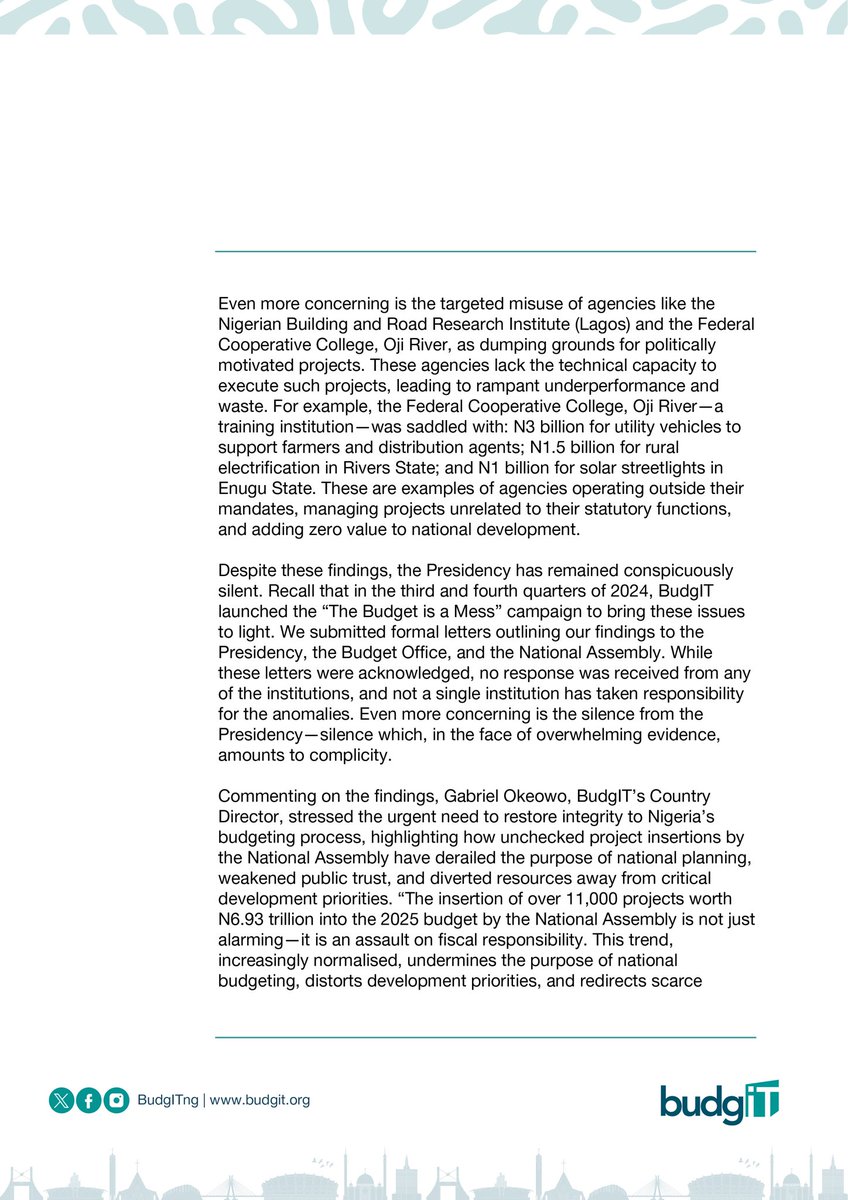Our virtual press conference on the Open Treasury Portal is now live!
Stay tuned for updates!
#OpenTreasury
Stay tuned for updates!
#OpenTreasury
https://twitter.com/BudgITng/status/1268141900822908931
On the 9th of December, 2019, the Federal Government launched the Open Treasury Portal for the purpose of increasing transparency in government spending
We appreciate this great effort by the government to ensure fiscal transparency. Our review highlights the functionality, advantages and some of the defects that we noticed - Ojiugo Uche
From our report, we summarized the defects, issues and faulty lines into 10 important questions
#OpenTreasury
#OpenTreasury
Question 1: How can interested citizens along with stakeholders reliably reach out with questions about the platform and its contents?
#OpenTreasury
#OpenTreasury
We discovered that, though the phone number provided on the platform does not connect to any individual and the contact form cannot be successfully submitted.
#OpenTreasury
#OpenTreasury
@FinMinNigeria received 158,05% of their allocation in 2019 but the @NCDCgov only received 44%. Nevertheless, there is nowhere either on this platform or on other platforms, the rationale that informed this spend prioritization decision is indicated.
There is a discrepancy between the figures noted as “2019 Budget” and the budget figure as contained in the 2019 Appropriation act without any explanation provided for this
discrepancy.
#OpenTreasury
discrepancy.
#OpenTreasury
4. What is the explanation for making several payments on the same day to the same beneficiary?
#OpenTreasury
#OpenTreasury
While some of these payments appear to be duplicates (e.g. with the same amount paid), others reflect different payment amounts made to the same beneficiary on the same day with different amounts and with the same descriptions.
#OpenTreasury
#OpenTreasury
5. Why are large payments being made to personal accounts as opposed to company accounts?
#OpenTreasury
#OpenTreasury
Since government contracts are with companies, the
expectation is that payments are likewise made to companies and not individuals. Where this is not the case, an explanation is required to ensure full transparency
#OpenTreasury
expectation is that payments are likewise made to companies and not individuals. Where this is not the case, an explanation is required to ensure full transparency
#OpenTreasury
One of such payments is that of N 157m, made to an individual account with the description “For transfer to NCDC for emergency Lassa Fever Response’’ which begs the question of why the beneficiary account did not read “NCDC”.
This particular example doubly needs an explanation as the payment record was also duplicated in that day’s record.
#OpenTreasury
#OpenTreasury
6. How can the public easily view all payments made to a particular beneficiary?
7. Why are there capital payments at the end of the year when project implementation is then impossible?
#OpenTreasury
#OpenTreasury
8. What are these payments amounts which do not indicate ministry name, organization and beneficiary name?
#OpenTreasury
#OpenTreasury
Having payment records without corresponding information on ministry, organization and beneficiary is akin to stating that millions of naira were spent but are not traceable.
9. What are explanations for the multitude of payments with either no description or incomprehensible descriptions?
#OpenTreasury
#OpenTreasury
Without descriptions, public evaluation and understanding of payment records is hindered and the purpose of the platform is not fully realized.
#OpenTreasury
#OpenTreasury
The 10 questions about the Open Treasury Platform and its data makes bare the weaknesses of the platform. Based on the observations and unanswered questions above...
#OpenTreasury
#OpenTreasury
...we recommend 3 broad classes of actions to improve user experience on the platform, to increase the transparency
of the data available and to engage beyond the platform.
#OpenTreasury
of the data available and to engage beyond the platform.
#OpenTreasury
Our Principal lead, @GabsynGreat is currently reading the press release, signed by @dammyogundipe - @budgit's Communication Lead
Download full report: bit.ly/open-treasury
• • •
Missing some Tweet in this thread? You can try to
force a refresh























